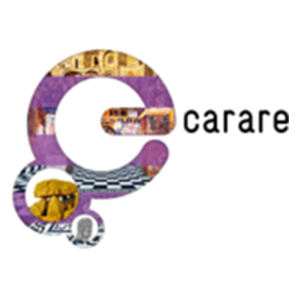
CARARE
CARARE is a non-profit association that brings together agencies and organisations, research institutions, specialist digital archives and others with an interest in the archaeological and architectural heritage. CARARE aims to advance professional practice and foster appreciation of the digital archaeological and architectural heritage through the promotion for public benefit of digitisation, connection, enhancement, and use of digital content nationally and internationally. It supports the creation, connection, enhancement and use of digital archaeological and architectural heritage resources, for work, research, learning and for enjoyment.
For more information, visit the official website carare.eu/en/

PHOTOCONSORTIUM
Photoconsortium is an international association of archives, museums, libraries, research institutions, and private companies working together to promote the cultural value of photographic heritage and to increase public access to it. The consortium was established in 2014 as part of the European Commission’s project Europeana. The main goal of Photoconsortium is to support the digitization and preservation of photographic collections, as well as to promote the use of digital technologies for accessing and sharing these collections with the wider public. The consortium also provides a platform for its members to share best practices, collaborate on projects, and advocate for the importance of photographic heritage in the cultural landscape. Photoconsortium is involved in various initiatives and projects related to photographic heritage, including exhibitions, workshops, and online platforms for sharing and accessing digital collections. The consortium also collaborates with other organizations and institutions to promote the use of photographic heritage for research, education, and cultural tourism.
For more information, visit the official website photoconsortium.net/
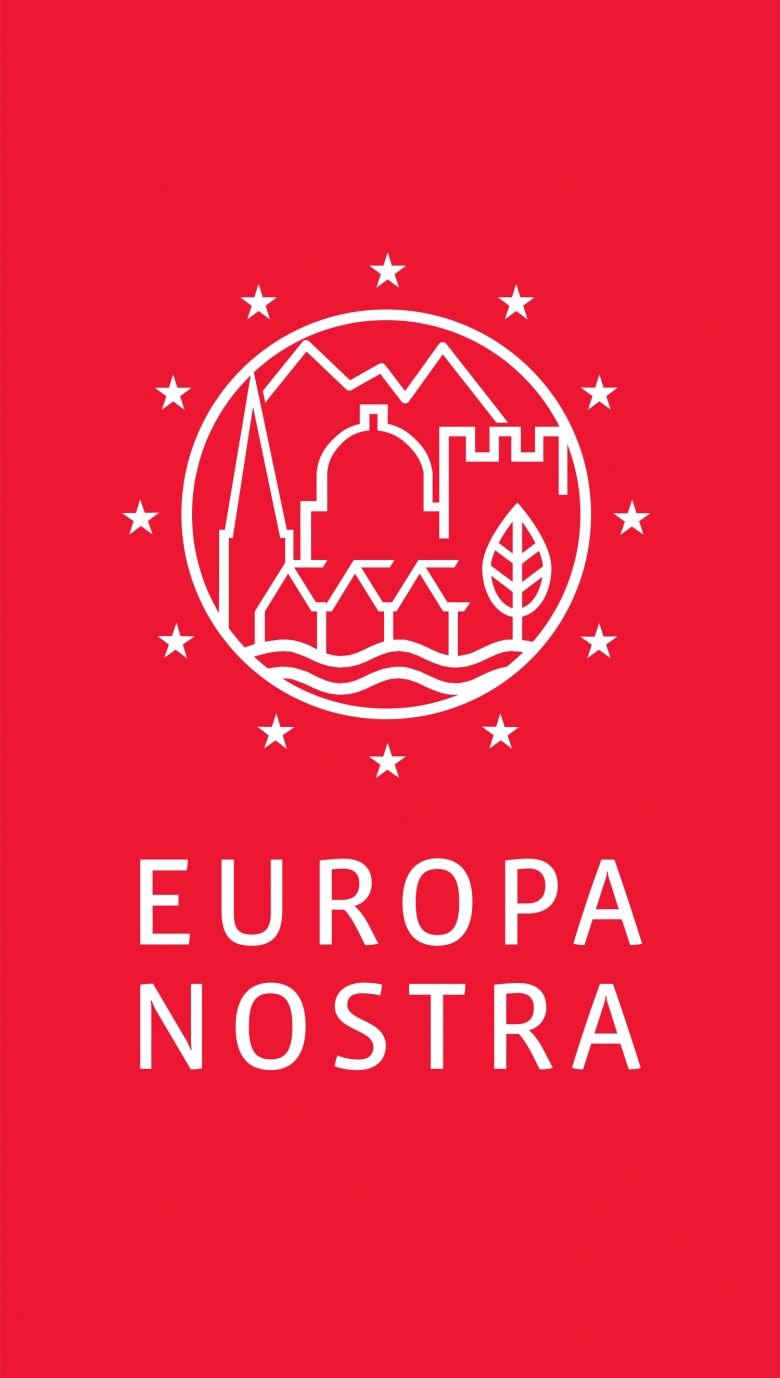
EUROPA NOSTRA
Europa Nostra is a pan-European federation of non-governmental organizations (NGOs) and individuals dedicated to promoting and safeguarding Europe’s cultural and natural heritage. Europa Nostra’s mission is to identify and celebrate Europe’s cultural heritage, raise awareness about the value and importance of cultural heritage, and advocate for the protection and preservation of historic landmarks, monuments, and natural landscapes. The organization works closely with the European Union, national governments, and other stakeholders to promote policies and initiatives that support cultural heritage. Europa Nostra’s activities include the European Heritage Awards, which recognize outstanding heritage preservation projects and initiatives; advocacy and lobbying efforts to promote heritage conservation and sustainable development; and educational programs and initiatives to raise public awareness about Europe’s cultural heritage. Europa Nostra has a wide network of members and partners across Europe, including national and regional heritage organizations, museums, universities, and other cultural institutions, as well as individual experts and volunteers who share the organization’s commitment to preserving and promoting Europe’s cultural heritage.
For more information, visit the official website europanostra.org/
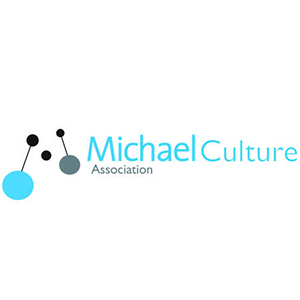
Michael Culture
Michael Culture Association (MCA) is a non-profit association based in Brussels, Belgium, that aims to promote digital cultural heritage in Europe and beyond. It was founded in 2006 and consists of a network of cultural institutions, archives, libraries, and museums from different European countries.The association provides a platform for its members to exchange knowledge, share best practices, and collaborate on projects related to the digitization and online accessibility of cultural heritage. Michael Culture Association also engages in advocacy and policy-making activities at the European Union level, promoting the importance of digital cultural heritage and advocating for funding and support for related initiatives. The name “Michael” stands for “Multilingual Inventory of Cultural Heritage in Europe”, which was the association’s original project aimed at creating a multilingual, online database of European cultural heritage. Since then, Michael Culture Association has expanded its scope to encompass broader issues related to digital cultural heritage.
For more information, visit the official website michael-culture.eu/

TIME MACHINE ORGANISATION
The “Time Machine” is a large-scale research initiative funded by the European Commission that aims to create a digital representation of European cultural heritage, from the past to the present, using advanced technologies such as artificial intelligence, machine learning, and big data analytics. The initiative involves more than 30 European countries and aims to enable historians, researchers, and citizens to better understand and appreciate Europe’s rich cultural heritage by providing access to a wealth of digitized historical data. The Time Machine Organization is the consortium of institutions and organizations involved in this initiative. The organization includes universities, research centers, libraries, archives, museums, and other cultural institutions. The ultimate goal of the organization is to create a virtual “time machine” that can transport users to any period in European history and allow them to experience the sights, sounds, and events of the past in a highly immersive and interactive way.
For more information, visit the official website timemachine.eu/
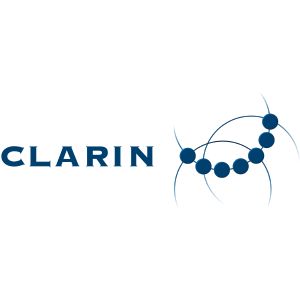
CLARIN ERIC
CLARIN ERIC (Common Language Resources and Technology Infrastructure European Research Infrastructure Consortium) is a research infrastructure that aims to make language resources and technologies available to researchers and scholars in the social sciences and humanities. The main goal of CLARIN ERIC is to create a sustainable infrastructure that provides access to digital language data, tools, and services. This includes language resources such as corpora, lexica, and speech recordings, as well as tools for processing, analyzing, and visualizing language data. CLARIN ERIC operates in several countries across Europe and is supported by funding from the European Union and its member states. The infrastructure is governed by a consortium of partner institutions from different countries, and its activities are coordinated by a central office located in the Netherlands. The infrastructure is designed to support research in various fields, including linguistics, language technology, digital humanities, and social sciences. Its resources and services are available to researchers, students, and educators across Europe and beyond.
For more information, visit the official website clarin.eu/
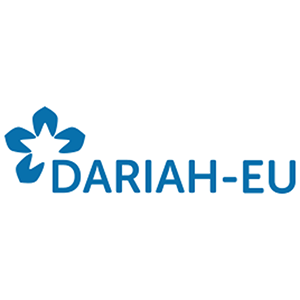
DARIAH – EU
DARIAH-EU (Digital Research Infrastructure for the Arts and Humanities) is a research infrastructure that aims to support digital research in the arts and humanities in Europe. It is a network of people, expertise, information, and technology, and its mission is to develop and maintain an infrastructure that facilitates the use of digital tools and methods for arts and humanities research. DARIAH-EU was launched in 2014 and is funded by the European Commission and its member countries. Its main goal is to bring together researchers, educators, and other stakeholders in the arts and humanities to foster collaboration and innovation in digital research. The infrastructure provides a wide range of services and resources, including training and support for digital research methods, tools for data management and analysis, and access to research data and collections. DARIAH-EU operates through a decentralized network of affiliated organizations, known as “national nodes,” which are located in various European countries. These nodes work together to develop and maintain digital research services and resources for their respective communities, while also contributing to the larger DARIAH-EU network.
For more information, visit the official website dariah.eu/
